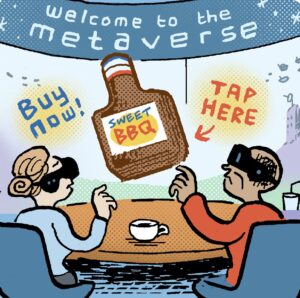 The FTC reached a settlement with Lord & Taylor on Tuesday for an influencer marketing campaign last March that did not disclose to consumers that the content was a paid endorsement.
The FTC reached a settlement with Lord & Taylor on Tuesday for an influencer marketing campaign last March that did not disclose to consumers that the content was a paid endorsement.
While the luxury goods company won’t have to pay a fine, in the future it will need to not only require disclosure from influencers, but to have them sign a statement of acknowledgement about the need to disclose. Lord & Taylor will also be required to monitor posts to make sure they adhere to that disclosure.
“We would argue that this would be a best practice for any business,” said FTC senior attorney Robin Spector.
During the penalized campaign, Lord & Taylor had 50 bloggers post pictures of themselves in a dress on Instagram, and paid them between $1,000 and $4,000 for each post. It also paid Nylon Magazine to produce a post without any disclosure.
Marketers are responsible for disclosing the nature of these relationships, said Spector. “In this case, the company had involvement in reviewing the drafts of the posts, and they should have known that the disclosure should have been made.”
The campaign reached 11.4 million users, generated 328,000 engagements – and sold out the dress. But some commenters, seeing the same paisley dress plastered across different Instagram accounts they followed, questioned whether the campaign was paid.
It must be obvious to a reasonable consumer whether content is an ad or not, according to FTC guidelines.
The FTC released guidelines for paid endorsements in 2009 that laid out how marketers should offer disclosures on social media. And in December it rolled out native advertising guidelines, which apply to Lord & Taylor’s sponsored post in Nylon Magazine.
The FTC will not seek action against the publisher and influencers involved, although it has occasionally held other parties responsible besides the marketer. Last September, for instance, it reached a settlement with multichannel network Machinima.
But because Lord & Taylor had editorial control over the post, Spector said, the FTC decided “they were the proper party to seek out enforcement action.”
Although the FTC doesn’t have the resources to monitor how well marketers are adhering to the current disclosure guidelines overall, Spector and the FTC have noticed an uptick in influencer marketing. It’s the agency’s hope brands will follow the best practice guidelines it lays out in places like the FTC’s blog.
“What we are asking people to do is not onerous,” Spector said. “It’s just putting #ad in there. That doesn’t require that much space and effort.”
Update: Lord & Taylor released the following statement to AdExchanger, edited for conciseness: “In the FTC’s consent order announced today, there is no finding of wrongdoing whatsoever. A year ago, when it came to our attention that there were potential issues with how the influencers posted about a dress in this campaign, we took immediate action with the social media agencies that were supporting us on it to ensure that clear disclosures were made. … We remain dedicated to our core values of transparency and honesty in everything that we do for our customers.”













